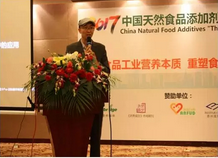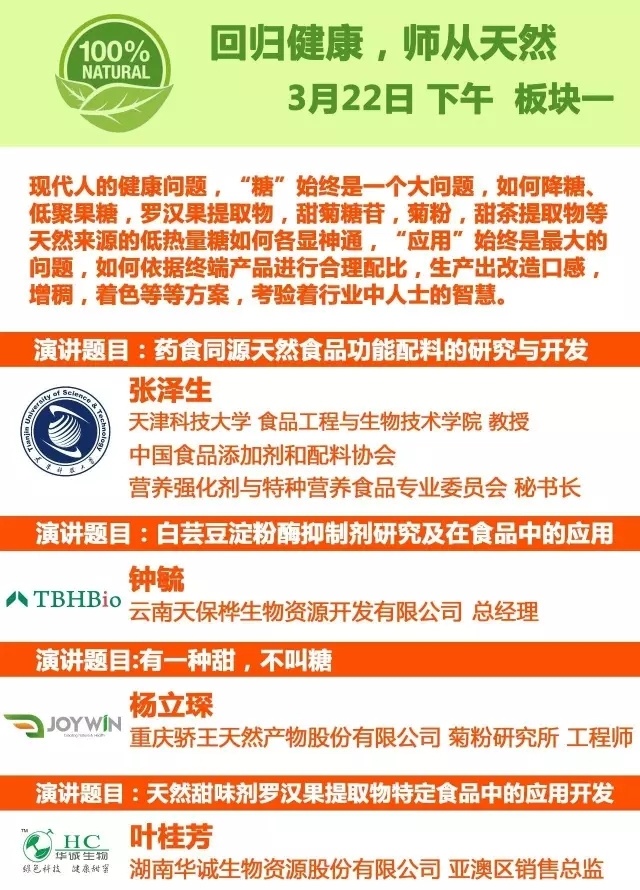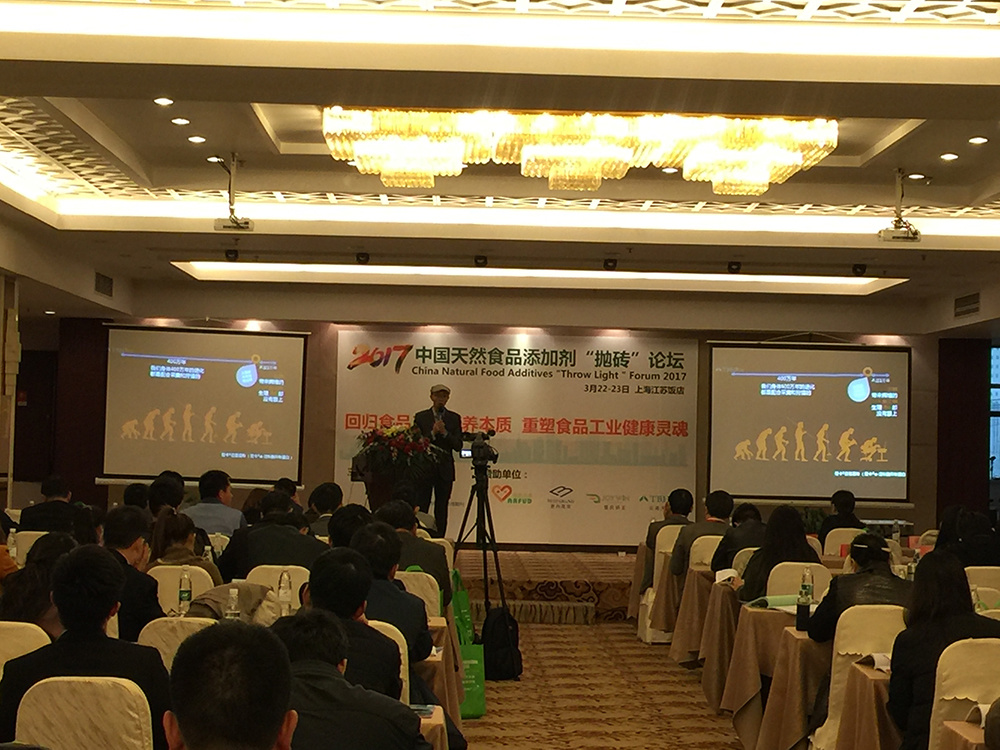Information Details
Borrowing the "momentum" of nature, food additives are bound to have a role to play
Release time:
2017-06-12 00:00
In today's increasingly demanding consumers on food quality, natural food additives are rapidly gaining popularity and becoming the new favorites of food manufacturers and consumers.On March 22~23, at the 2017 China Natural Food Additives "Brick Throwing" Forum hosted by Phytobridge Media and Natural Ingredients e-journal

In today's increasingly demanding consumers on food quality, natural food additives are rapidly gaining popularity and becoming the new favorites of food manufacturers and consumers.On March 22~23, at the 2017 China Natural Food Additives "Brick Throwing" Forum hosted by Phytobridge Media and Natural Ingredients e-journal, experts and industry insiders pointed out that keywords such as "safety", "functionality" and "standardization" constitute the "potential" of the natural food additives industry. Industry insiders pointed out that "safety", "functionality", "standardization" and other keywords constitute the "potential" of the natural food additives industry. "Enterprises should follow the trend, go with the trend and take advantage of the trend in order to be invincible in the fierce competition.

Formula "safe" is the minimum standard
Food safety first. Gu Zhenhua, president of Shanghai Food Safety Federation, pointed out that China's food safety in general presents "two high and one low" situation, that is, the food safety monitoring pass rate is at a high level, the public's knowledge of food safety has gradually improved, and the incidence of food poisoning is at a low level. In the comprehensive global food safety assessment, China's food safety and security ranked 38th, in a medium position, but China is also faced with foodborne illnesses that jeopardize public health and the impact of public opinion and other pressures.
For the safety of food additives, Professor Cao Yanping of the Department of Food Science and Engineering, School of Food, Beijing Technology and Business University, analyzed that in 2010, China's residents have a negative view of food additives is roughly 77%, and even many people engaged in the food industry do not understand the food additives, which is worrying.
"The most problematic aspect of food additives at the moment is the over-scope and over-limit use, which is a major cause of violations." Cao Yanping said, "Even natural food additives are not absolutely safe and need to be evaluated for safety, nor can they be added at will, and need to be limited in use according to regulations. Regardless of whether they are synthetic or natural, manufacturers must use them in accordance with national laws and relevant standards (GB2760-2014) in order to ensure food safety."
Yingjian Xu, a member of the Royal College of Chemistry, pointed out that heavy metal residues have become a problem that plagues food safety. His technology of metal decontamination and purification using coordination-type functional materials has the advantages of high selectivity and targeting, and has become a leading technology in the field of decontamination, which will be used in the field of food ingredients in the future.

Formula "functionality" as the pursuit of the goal
"At present, consumers' focus on food has changed, no longer to solve the problem of food security, but more attention to food safety, the future development will also pay more attention to food function." Zhang Yan, technical director of Angie's Yeast Co., Ltd. introduced that functional food emphasizes its ingredients with the body's defense function, regulating physiological patterns, preventing disease and promoting recovery.
In the research report of "Research and development of functional ingredients of natural food from the same source of medicine and food", Zhang Zesheng, professor of the School of Food Engineering and Biotechnology of Tianjin University of Science and Technology, takes the role of hawthorn in protecting cardiovascular as an example, and conducts a comprehensive and in-depth research from mechanism to clinic, which provides a "high level" for the food made of hawthorn in China. It provides a "lofty" development idea for China's food products made of hawthorn. With the focus on "precision", Zhang Zesheng emphasized that extracts from natural sources should not only call themselves as so-and-so extracts, but should be upgraded to compounds or specific names of single active ingredients, and put forward the viewpoint of "precise ingredients can have precise effects".
As a pioneer of amylase inhibiting protein products, Yunnan Tianbao Birch Bioresource Development Co., Ltd. general manager Zhong Yu about white kidney bean amylase inhibitor (white kidney bean - AIP) research report was released on the "powder" countless. He introduced, control card white kidney bean powder can block 70% to 80% of the food within the starch and other polysaccharides decomposition, so that its absorption in the digestive tract to reduce and slow down, directly through the digestive tract out of the body. Participants believed that white kidney bean-AIP could later be widely used in sugar-free food, low-calorie food and health food with calorie control function.
"There is a sweetness not called sugar. What is it then? It is a natural sweetener with fat-substituting dietary fiber-cum-prebiotic effects, also known as inulin." Yang Lichen, R&D engineer of Chongqing Jiao Wang Natural Products Co., Ltd, introduced that inulin, as a natural sweetener with the efficacy of regulating blood glucose, blood lipid, and promoting the absorption of calcium and magnesium, has a wide range of applications in food, functional food and health care products.
Formula "standardization" for sustainable development
"China's food industry as a whole has come out of the nascent stage and is at a critical stage of moving from scale to agglomeration, balance and alliance." Liao Jingjun, chairman of Zishi Bio, judged. He pointed out that online public opinion shows that the public is most concerned about food safety, which is led by young and middle-aged people, especially in East China, where misunderstandings about food additives and the "demonization" of genetically modified foods are blowing up.
"Enterprises should pay attention to the exchange of food safety risk information, food safety traceability and food safety recall, rather than waiting for problems to arise before communicating, which is very passive." Gu Zhenhua emphasized.
Next Page







